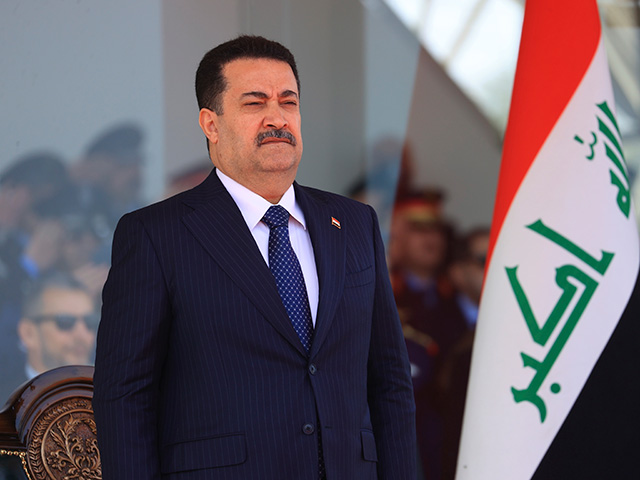Iraqi security forces fired on protesters outside a KFC restaurant in Baghdad on Monday, reportedly wounding three people and arresting 12.
The Iraqi Interior Ministry said after Monday’s arrests that some of the suspects “unfortunately” appeared to belong to “one of the security apparatuses.” Security officials mentioned that many of the detainees were rapidly released.
The Iraqi government has been eager to attract major international brands to invest in Iraq, whereas Iran’s militia proxies aim to penalize Western companies for their support of Israel. KFC, previously recognized as Kentucky Fried Chicken, is a favored brand in parts of the Middle East, making it a common target for boycotts and mob actions.
Kataib Hezbulla attacking restaurants in Baghdad earlier tonight. KFC and other brands were attacked pic.twitter.com/QTXakHgtEF
— Steven Nabil (@thestevennabil) June 3, 2024
Two officials from Iran-backed militias in Iraq confirmed to the Associated Press on Friday that the vandals were their operatives. These officials stated that the attacks were meant to encourage boycotts of American brands and enhance the image of the militias as powerful and dangerous.
A spokesman for one of the largest Iran-backed militias, Katai’b Hezbollah, stated on Monday that supporters should organize and act to rid Iraq of Israel’s alleged “espionage affiliates covered in civilian garb.”
Political analyst Ihsan al-Shammari commented that the attacks have “political goals,” including conveying the message that “any investment or presence of Western companies in Iraq cannot survive.”
Iran’s militia proxies lost significant influence in the 2021 parliamentary elections, while militant Shiites who portrayed themselves as more loyal to Iraq than Iran saw a rise. The unpredictable nature of Iraq’s most influential Shiite and nationalist leader, Moqtada al-Sadr, allowed Sudani to take office as a compromise candidate.

Iraqi Prime Minister Mohammed Shia al-Sudani (Murtadha Al-Sudani//Pool Photo via AP)
Al-Sadr demanded in May that Sudani expel the U.S. ambassador and close the U.S. embassy in response to Israel’s “genocide” in Gaza. He was considerate enough to suggest that he wanted the embassy to be shut down “without bloodshed.”
Sudani allocated funds to the Shiite militias, who were nominally deputized by the Iraqi military to combat the Islamic State but demonstrated little loyalty to Baghdad while sending the message that he desired a more stable Iraq that could attract more foreign investments.
Any progress Sudani made along those lines was disrupted by the Hamas attack on Israel on October 7 and Israel’s military response in Gaza. The Shiite militias began targeting American entities across Iraq —ineffectively at first, but later with fatal results.
State Department spokesman Matthew Miller said at a press briefing on Thursday that the United States expects the Iraqi government to “prevent attacks being launched on their soil,” including militia attacks against Iraqi civilians:
The attacks on what are essentially franchises of U.S. companies harm Iraqi workers, Iraqi patrons, and sometimes Iraqi capital that is being employed there, and so they are attacks against the Iraqi people, and we think the Iraqi Government ought to take appropriate measures to respond to those attacks and hold people accountable for them.
Miller remarked that the U.S. is concerned that Iraq’s Popular Mobilization Forces (PMF), the name given to the Shiite militias when they joined the fight against ISIS, “are not responsive to the Iraqi commander in chief and engage in violent and destabilizing activities in Iraq and Syria.” He did not comment when a reporter pointed out that some of the terrorists arrested in Baghdad on Monday were reportedly members of the security forces.




